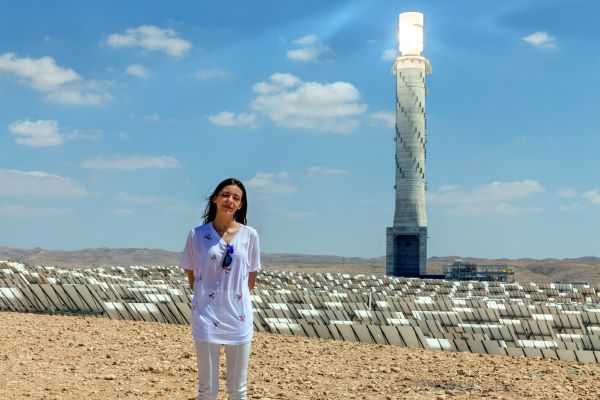The agreement expedites an exchange of Israel’s desalinated water for Jordan’s solar electricity.
By Pesach Benson, TPS
On the sidelines of the UN Climate Change Conference, Israeli, Jordanian and Emirati officials signed a Memorandum of Understanding to share energy on Tuesday.
The agreement expedites a previous agreement signed last year, in which Israel provides Jordan with desalinated water in exchange for solar electricity produced in the Hashemite Kingdom. Jordan’s solar electricity facility will be built by an Emirati firm will have a capacity of 600 megawatts.
The agreement was signed by Israeli’s outgoing Regional Cooperation Minister Esawi Frej, Jordanian Minister of Water and Irrigation Mohammad Al Najjar and UAE Climate Change and Environment Minister Mariam Al Mheiri in the presence of US climate envoy John Kerry.
Last year, the three countries signed a “letter of intent” declaring preliminary commitment. The Memorandum of Understanding documents in broader outlines those commitments. The MOU commits Israel to build a new desalination plant and provide 200 million cubic meters of water.
World leaders have been converging on Egypt’s Red Sea resort town of Sharm el-Sheikh for the UN COP27 Climate Change Conference taking place Nov. 6-18 to advance cooperation and initiatives to combat global warming and related environmental issues.
Israel’s delegation to the conference is headed by President Isaac Herzog. Herzog is being accompanied by Environmental Protection Minister Tamar Zandberg, Innovation, Science and Technology Minister Orit Farkash-Hacohen, Education Minister Yifat Shasha-Biton, and Frej. All will be stepping down from their posts when a new Israeli government is expected to be sworn in in the coming weeks.
The President inaugurated the convention’s Israeli pavilion highlighting the work of 10 Israeli climate-tech companies focusing on innovations in areas of forestry, agriculture and water reservoirs.
Addressing the conference on Monday evening, Herzog stressed that Israel is “prepared to assume far greater responsibility in leading the effort toward climate resilience.” He also reiterated a pledge by former Prime Minister Naftali Bennett that Israel would achieve net zero carbon emissions by 2050.
